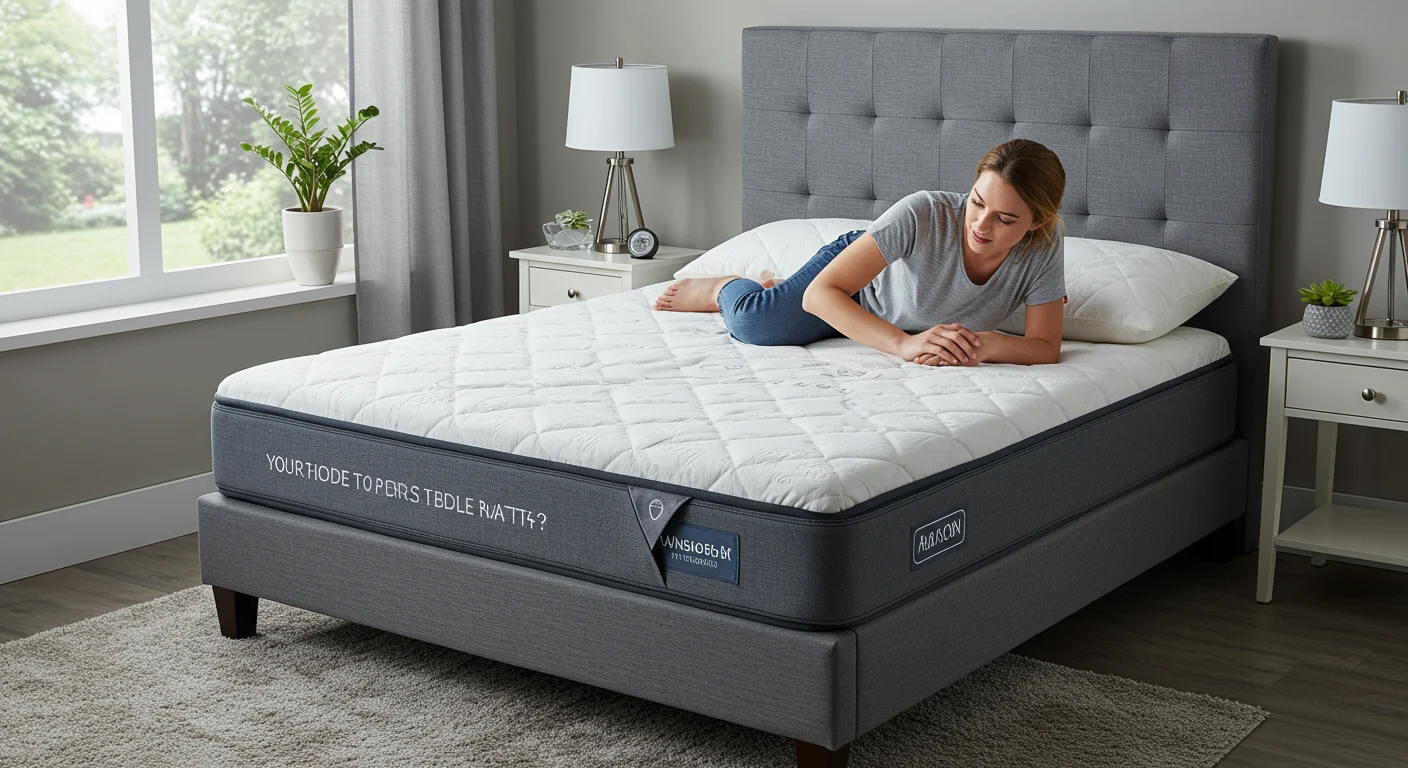
The Secret to Better Sleep? Best Bed for Snoring
If you’ve ever stared at two nearly identical bed bases and thought, “Why is this one $400 more?”, you’re not alone. Here’s the thing: the right adjustable bed changes how you recover, read, and binge shows—without turning your bedroom into a spaceship. I’ll walk you through the features that actually matter, in plain English, so those adjustable bed frame reviews make sense instead of melting your brain. I write for Consumer's Best, and I’m rooting for your sleep.
Start with the base: motors and motion
Motors are the heartbeat. You want smooth lift and enough range to actually elevate your head and feet—think real zero‑gravity, not “kinda elevated.” Dual motors (head and foot) are standard; a third motor for lumbar is a bonus if you crave extra lower‑back support. Wall‑hugging is one of those features that sounds fancy but matters more than you’d think; it slides you back as you go up so your nightstand doesn’t wander away. In adjustable bed frame reviews, I pay close attention to lift speed and how steady the base feels at full height—wobble is a deal‑breaker.
Presets you’ll actually use
Zero‑G and anti‑snore are the real MVPs. Zero‑G takes pressure off the lower back and hips (believe it or not, your calves will thank you). Anti‑snore bumps the head just enough to open the airway without feeling like you’re sitting up. Memory buttons are worth it if you don’t want to fiddle every night. Massage? It’s hit‑or‑miss—relaxing for some, buzzy for others. When I scan adjustable bed frame reviews, I’m looking for presets that feel comfortable out of the box and remotes that don’t require a scavenger hunt in the dark.
Mattress fit and compatibility
Most foam, latex, and many hybrids play nicely with adjustable bases. Super‑tall mattresses or mattresses with rigid edge coils can fight the bend a bit, so double‑check. Retainer bars are common, but some frames use grippy surfaces or corner keepers—handy if you hate the bar look. Split king is awesome if one person sleeps flat and the other wants to float in zero‑gravity. In adjustable bed frame reviews, I call out any odd mattress quirks—especially heavy models that make weaker motors groan.
Noise, build, and weight capacity
No one wants a whirring robot under the bed at 2 a.m. The best units sound like a quiet hum, not a blender. Steel frames with solid center rails feel stable at full incline, and good feet matter on wood floors. Weight capacity isn’t just about people—it’s people plus mattress, plus the dog, plus pillows. If you’ve seen adjustable bed frame reviews grumble about squeaks, it’s usually cheaper joints or loose bolts. A well‑built base should feel planted, not springy.
Smart controls and creature comforts
Backlit remotes are a quiet luxury. So are dedicated Zero‑G and Flat buttons—the muscle memory is real. Apps are nice if you love routines or voice control, but the remote should be good enough on its own. Under‑bed lighting is gold for midnight water runs, and USB ports cut cord chaos. Cable management matters more than it sounds; dangling wires equal future annoyances. When I compare adjustable bed frame reviews, I watch for fussy apps and flaky Bluetooth—no one wants to troubleshoot at bedtime.
Safety, setup, and service
Look for a child lock, a manual or battery backup to get you flat during an outage, and legs that adjust without a wrestling match. Setup is usually simple—attach legs, flip, pair remote—but white‑glove delivery is worth it if stairs or tight corners make you nervous. Warranties tell you how confident the brand is in its motors and electronics. In adjustable bed frame reviews, any pattern of controller failures or broken welds gets a big yellow flag from me.
Price vs. value: where to splurge, where to save
If you care about back relief, splurge on stable motors and Zero‑G. If you’re a gadget person, go for a great remote first, apps second. Massage is nice‑to‑have, not need‑to‑have. Honestly, a mid‑range base with the right presets often beats a flashy one with so‑so motion. When you’re ready to see how this plays out in the real world, check my adjustable bed frame reviews on Consumer's Best—I break down what impressed me, what didn’t, and who each base actually suits.






